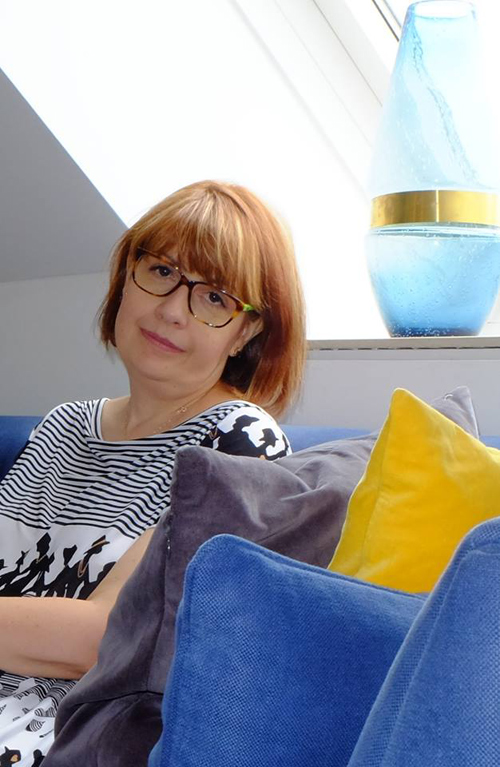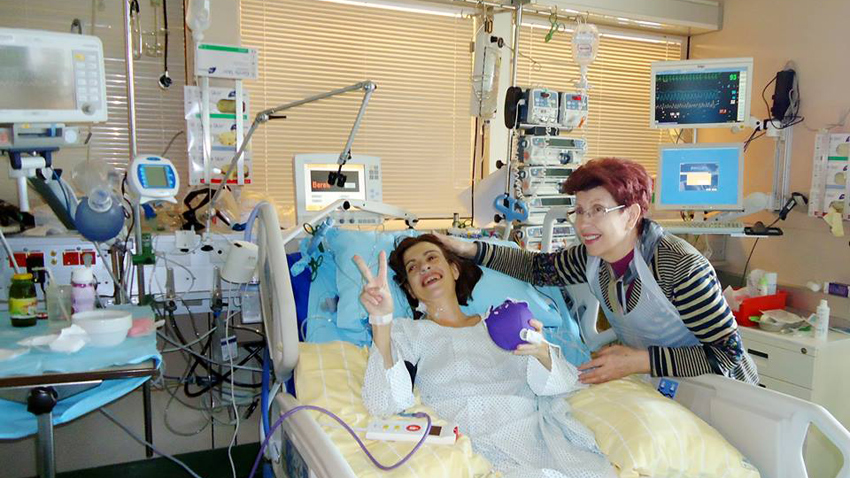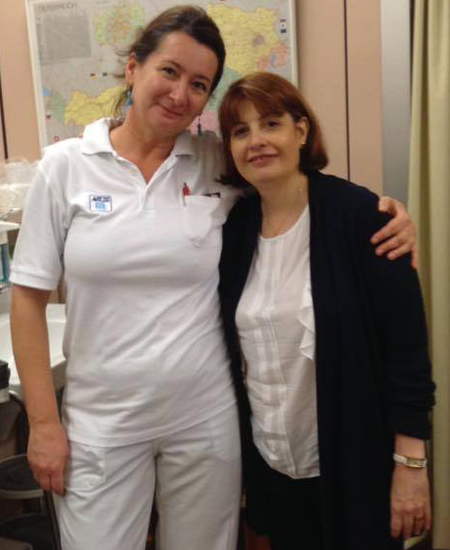 The personal story of Natalia Maeva is exciting and inspiring because of her great courage and will for life. At the same time, her story raises many questions about the situation of the Bulgarian healthcare system. Back in 2009 Natalia was diagnosed with pulmonary arterial hypertension. "At that time the Bulgarian state did not provide adequate therapy and my family had to pay for it," Natalia says.
The personal story of Natalia Maeva is exciting and inspiring because of her great courage and will for life. At the same time, her story raises many questions about the situation of the Bulgarian healthcare system. Back in 2009 Natalia was diagnosed with pulmonary arterial hypertension. "At that time the Bulgarian state did not provide adequate therapy and my family had to pay for it," Natalia says.
Pulmonary hypertension is a rare disease that cannot be treated and only maintenance therapy exists. Over time breathing becomes difficult, movements start causing fatigue. Small arteries in the lungs get narrower and the heart pushes the blood through them with difficulty. In the last stage of the condition, bilateral lung transplantation is required. In 2014 Natalia's condition started worsening. "I always carried oxygen with me. In such a state a person is isolated from society. But I was trying to do other things," Natalia says. She has been actively working for the Bulgarian Society of Patients with Pulmonary Hypertension, helping other people with such a diagnosis. For eleven months she was waiting for a suitable donor. And just when she thought that would not happen, she received the long-waited call. But she was not afraid. "I had already reached a point where I had nothing to lose. It was the only logical step to take." The transplant operation took place at the University Hospital in Vienna. Here's how Natalia describes the emotion to wake up after transplantation:
"This is an amazing experience. You feel like you're flying. But you do not know how to breathe normally, because as you had been sick for so many years, you've lost your normal rhythm of breathing. And you start from the beginning; you actually learn to breathe in and breathe out. It took me about three months."

After the transplant, struggles did not end because “one has to think about the three-month stay in Austria. The Bulgarian state gives you the money for the operation and that’s it. From there on you cover the other expenses. That's why I thank everyone who helped me and continues to do it," Natalia says.
Is it a feat for a Bulgarian patient to receive a transplant?
"For some it is a feat actually, because in order to do this, you have to fight the system. This is not easy at all in Bulgaria. Getting financing, meeting the commission's requirements for treatment abroad – it is hell. When a patient needs a transplant, they do not have time for all this struggle, carrying documents and letters from hospitals around. Every single day is important and here the patient has to make their own path. If they are unable to struggle and are not physically capable of doing all that, they simply die.”
 Transplantation takes place abroad, as there are no conditions to do this in Bulgaria, Natalia points out. She summarizes the priorities of the Bulgarian Society of Patients with Pulmonary Hypertension as follows:
Transplantation takes place abroad, as there are no conditions to do this in Bulgaria, Natalia points out. She summarizes the priorities of the Bulgarian Society of Patients with Pulmonary Hypertension as follows:
"Among our main tasks is the establishment of a post-transplant monitoring center for lung-transplant patients in Bulgaria. We are forced to travel for medical examinations in Austria. This is associated with huge financial resources, as there is no monitoring center here. We are actually currently monitored at the St. Ekaterina University Hospital in Sofia, which is specialized in cardiovascular diseases.”
Today, after all the obstacles, Natalia Maeva makes specific recommendations that would help people with pulmonary hypertension:
"We need to create a national lung transplant program. People in small towns do not know how to win against the system. Clear rules must exist. Patients who are told they need lung transplant also need to know what the next steps are. It is important to have a post-transplant center operating in Bulgaria with doctors trained in Europe. There are transplant patients in Greece, Romania, and Bulgaria. If such a center existed here it would encompass the whole of the Balkans."
English: Alexander Markov
The 14th edition of DiVino.Taste, Bulgaria’s leading forum for wines and winemakers, will take place from 28 to 30 November at the Inter Expo Centre in Sofia. Over 80 producers from all wine regions will participate, offering tastings of around 600 of the..
Minutes before the second and final reading, at the parliamentary budget and finance committee, of the state budget for 2026, the leader of the biggest party represented in parliament GERB Boyko Borissov halted the procedure and sent the draft bill..
Despite being in Bulgaria’s poorest region, the North-West, Vratsa Province ranks among the top three in the country for economic development. According to 2023 data from the National Statistical Institute (NSI), it shares third place with Varna on the..
Despite being in Bulgaria’s poorest region, the North-West, Vratsa Province ranks among the top three in the country for economic development. According..
Bulgarian artists will take part in the festive Christmas concert in Stockholm , organised with the European Commission's representation and embassies ,..
Minutes before the second and final reading, at the parliamentary budget and finance committee, of the state budget for 2026, the leader of the biggest..

+359 2 9336 661
